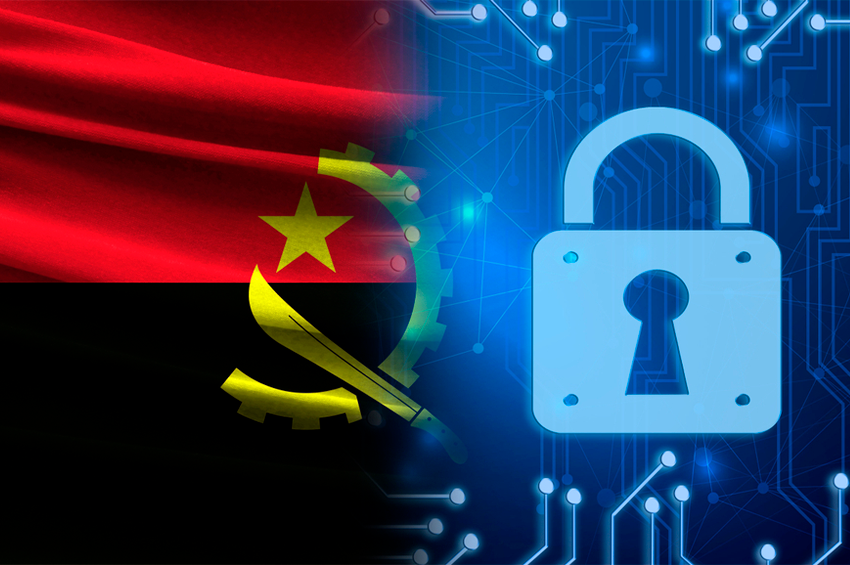Image: PTI
By Friends of Angola
Introduction
The “Draft Law on the Dissemination of False Information on the Internet”, presented by the Ministry of Telecommunications, Information Technologies, and Social Communication of Angola, seeks to create a legal framework to combat the spread of fake news in Angola’s digital space. Below, we present a critical analysis of the proposal, followed by a comparison with similar legislation in other African countries and in the international context.
1. Objective and Justification
The explanatory report indicates that the central objective is “to protect society against the harmful effects of disinformation”, especially in the context of increasing use of social media and the internet. It highlights the vulnerability of the public and the need to hold individuals and entities accountable for deliberately spreading false information.
2. Ambiguous Definition of “False Information”
The proposal lacks a precise and objective definition of “false information.” This opens the door to broad and subjective interpretations, which poses a risk to freedom of expression and investigative journalism. In democracies, even controversial or incorrect information is, in many cases, protected under laws that guarantee freedom of speech.
3. Sanctions and Criminal Liability
The proposal foresees severe criminal penalties, including fines and imprisonment for those who disseminate content considered false. This punitive approach has been criticized by international experts for failing to address the structural causes of disinformation, such as low media literacy or weak public media ecosystems.
4. Oversight and Jurisdiction
The proposal does not clearly specify which entity will be responsible for verifying, judging, and applying sanctions, nor the appeal mechanisms available to affected citizens or organizations. This lack of clarity could lead to the politicization of information regulation.
5. Risks to Freedom of Expression
The proposal can easily be instrumentalized to censor criticism of the government, under the pretext of combating disinformation. This is a pattern already observed in several countries with authoritarian regimes.
Comparative Study
Kenya – Computer Misuse and Cybercrimes Act (2018)
– Criminalizes the dissemination of “fake news.”
– Widely criticized by journalists and human rights advocates for being used to silence critics.
– The Supreme Court declared some sections unconstitutional for violating freedom of expression.
Nigeria – Protection from Internet Falsehoods and Manipulations Bill (2019, rejected)
– Inspired by Singapore’s law, it granted broad powers to the government to remove content deemed false.
– It was rejected following strong mobilization from civil society and independent media, which warned of censorship and political repression risks.
South Africa – Draft Online Content Regulation Policy (2020)
– Focuses more on platform regulation and promoting digital literacy than direct criminalization.
– Encourages self-regulation involving platforms and NGOs.
African Union – Declaration of Principles on Freedom of Expression and Access to Information (2019)
– Warns that laws against fake news should not disproportionately restrict freedom of expression.
– Urges states to promote government transparency, access to information, and media literacy education as means of combating disinformation.
Recommendations to Strengthen the Draft
– Revise the definition of “false information” to include objective criteria and safeguard legitimate criticism and satire.
– Replace criminal sanctions with civil and administrative mechanisms, prioritizing correction of information and the right of reply.
– Create an independent, multi-stakeholder body (government, civil society, media, digital platforms) for monitoring and providing recommendations.
– Invest in digital literacy campaigns and government transparency as preventive strategies.
– Promote public debate and civil society participation in the legislative process, ensuring democratic legitimacy.
Comparative Technical Table
| Country / Entity | Legal Instrument | Sanctions | Criticisms / Risks | Recommendations / Alternative Approach |
| Angola (Draft) | Draft Law on Dissemination of False Information | Fines and imprisonment | High risk to freedom of expression and political misuse | Revise definition of fake news, establish independent body |
| Kenya | Computer Misuse and Cybercrimes Act (2018) | Imprisonment and fines | Used against journalists and government critics | Judicial review of unconstitutional sections |
| Nigeria | Protection from Internet Falsehoods and Manipulations Bill (2019) | Imprisonment and censorship (rejected) | Rejected for threatening press freedom | Promote civic education and state transparency |
| South Africa | Draft Online Content Regulation Policy (2020) | No criminal penalties | More balanced; lower risk of censorship | Emphasize digital literacy and co-regulation with civil society |
| African Union | Declaration of Principles on Freedom of Expression (2019) | No penalties | Emphasizes rights protection and proportionality | Media education, access to information, no criminalization |
About Friends of Angola
Friends of Angola (FoA) is an international non-governmental organization with Special Consultative Status with the United Nations Economic and Social Council (ECOSOC) and observer status with the African Commission on Human and Peoples’ Rights (ACHPR). Its mission focuses on the promotion and protection of human rights, the advancement of transparency in public governance, and the strengthening of good governance principles in the Republic of Angola.

